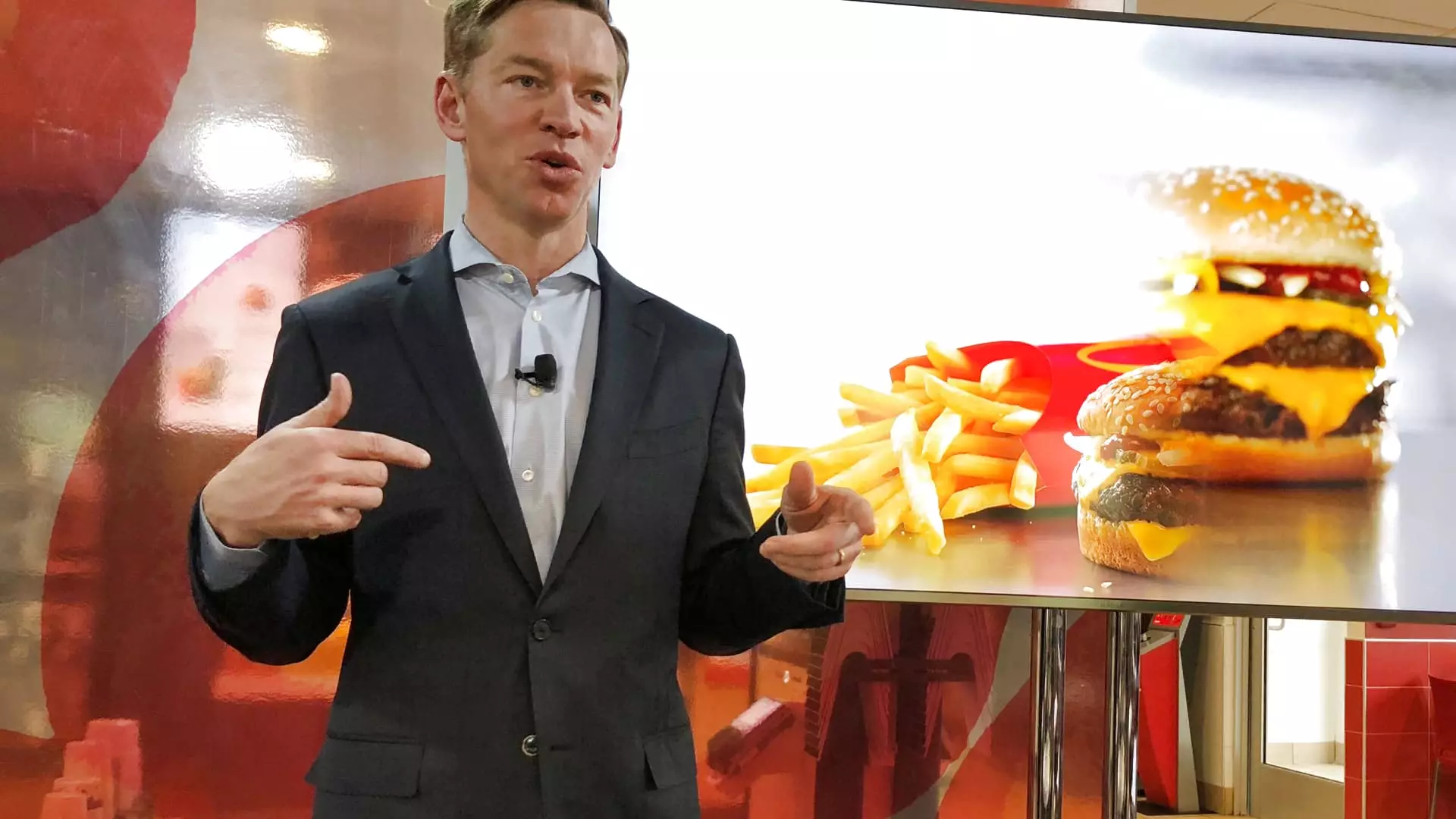In an age where food safety has become a significant concern for consumers, the recent E. coli outbreak linked to McDonald’s Quarter Pounder burgers served as a stark reminder of the potential risks involved in dining out. The fast-food giant faced immediate repercussions, from negative customer sentiment to declining sales in the days following the outbreak’s announcement. However, under the leadership of CEO Chris Kempczinski and CFO Ian Borden, McDonald’s is working to navigate this storm and reassure their customer base.
A Firm Stance on Recovery
Just a week after linking the outbreak to their signature burger, Kempczinski expressed optimism during a recent investor call. He articulated confidence by stating that the situation is now “behind us,” emphasizing their commitment to managing the crisis effectively. By reassuring stakeholders that they are focusing on restoring customer trust, McDonald’s aims to facilitate a swift recovery from this incident.
Borden echoed this sentiment, indicating that the company is dedicated to regaining the momentum it had built prior to the outbreak. The introduction of promotions such as the $5 value meal and the Chicken Big Mac prior to the scandal helped increase traffic and sales, demonstrating the effectiveness of targeted strategies in overcoming short-term challenges.
Amidst the outbreak, health authorities identified slivered onions as the likely source of contamination while confirming that the fresh beef patties used in the Quarter Pounders met safety standards. This prompted McDonald’s to undertake immediate action by suspending sourcing from their onion supplier indefinitely. Such a decisive measure not only illustrates the company’s commitment to food safety but also showcases their readiness to adapt swiftly to changing circumstances.
To mitigate further risks, McDonald’s announced that they would be reintroducing the Quarter Pounder without slivered onions, which underscores their proactive approach in managing food safety while continuing to offer their popular menu item. This strategy indicates a calculated move to balance operational needs with consumer safety, reflecting the complexities of running a global food service business.
Despite the hurdles presented by the outbreak, McDonald’s disclosed an increase in same-store sales in the U.S. during the third quarter, up 0.3% year-over-year, which shows resilience in the face of adversity. This statistic, although slightly below analyst projections, highlights the company’s ability to stabilize their sales amidst challenging circumstances. However, it is crucial to note that overall same-store sales fell by 1.5%, primarily due to decreased demand in international markets, signaling potential areas of concern for the company’s global operations.
In the immediate aftermath of the news, McDonald’s shares experienced volatility, initially declining by as much as 2.5%. Yet, as the company communicated its strategy during the investor call, shares rebounded, reflecting investor confidence in the management’s ability to handle the situation adeptly.
Commitment to Customers and Future Steps
An element of crisis management that cannot be overlooked is the company’s acknowledgment of the suffering caused to customers. Kempczinski’s heartfelt apology during the call served as a crucial step in rebuilding consumer trust. He expressed deep concern for the health impact experienced by customers, which is imperative for any business aiming to cultivate strong relationships with its clientele.
As the company moves forward, their primary goal is clear: restoring consumer confidence. This entails not only operational changes but also enhancing communication with customers, ensuring transparency in their food safety processes, and reaffirming their commitment to quality. These steps are vital for McDonald’s to navigate this challenging period while reestablishing itself as a reliable option for consumers.
The ordeal surrounding the E. coli outbreak serves as a significant learning opportunity for McDonald’s. While the challenges it presented were daunting, the company’s responsive measures, investor communication, and commitment to customer safety may help it emerge stronger. Through decisive action and a focus on rebuilding trust, McDonald’s can use this experience to enhance its protocols and reinforce its reputation as an industry leader committed to consumer wellbeing. As they address both the immediate fallout and long-term strategies, McDonald’s is poised to not only recover but to thrive in a competitive landscape where consumer trust remains paramount.

